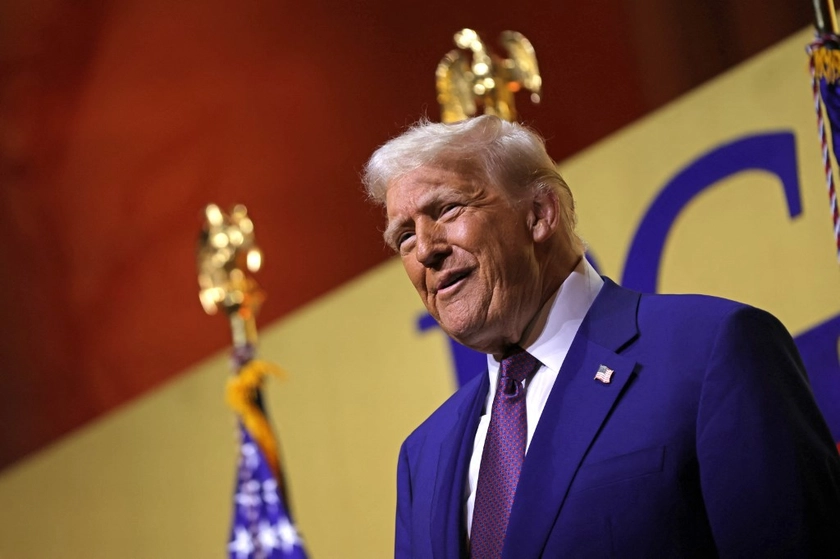Finns headed to the polls Sunday to elect a new president, an office whose importance has grown on increased tensions with neighbouring Russia since the invasion of Ukraine.
While the president’s powers are limited, the head of state -- who also acts as supreme commander of Finland’s armed forces -- helps direct foreign policy in collaboration with the government, meaning the changing geopolitical landscape in Europe will be the main concern for the winner.
JOIN US ON TELEGRAM
Follow our coverage of the war on the @Kyivpost_official.
Two top politicians lead the pack of nine candidates: former conservative prime minister Alexander Stubb, and ex-foreign minister Pekka Haavisto of the Green Party who is running as an independent.
Just behind the frontrunners are far-right Finns Party candidate Jussi Halla-aho, who experts believe could also make it to the second round.
The polls opened at 9:00 am (0700 GMT), and will close at 8:00 pm.
Voter Hannu Kuusitie told AFP the country needs a president with “leadership” and “humanity”.
“Of course, he must also be tough when necessary,” he added.
Relations between Moscow and Helsinki deteriorated following Russia’s 2022 invasion of Ukraine, prompting Finland to drop decades of military non-alignment and join NATO in April 2023.
Russia, with which Finland shares a 1,340-kilometre (830-mile) border, swiftly warned of “countermeasures”.
- Independent and ally -

Finnish Speaker of Parliament Says Russia’s True Reason for Attacking Ukraine vs. Baltics Is NATO
By August 2023, Finland observed an influx of migrants entering through its eastern border without visas.
Helsinki claimed Moscow was pushing the migrants in a hybrid attack to destabilise it, and Finland closed the eastern border in November.
“We are in a situation now where Russia and especially Vladimir Putin is using humans as a weapon,” Stubb said Thursday evening during a final televised debate.
“It’s a migrant issue, it’s a ruthless, cynical measure. And in that case we have to put Finland’s security first,” he added.
Main rival Haavisto stressed that Finland had to “send Russia a very clear message that this can’t go on”.
In the post-Cold War period, Helsinki maintained good relations with Moscow.
Incumbent President Sauli Niinisto -- who is stepping down after serving two six-year terms -- once prided himself on his close ties with Russian President Vladimir Putin before becoming one of his most trenchant critics.
Against this backdrop, all the presidential candidates champion both Finland’s independence and its new role as a NATO member, said Hanna Wass, vice dean at the Faculty of Social Science at the University of Helsinki.
“They all seem to have a strong idea emphasising self-sufficiency, in that in the future Finland should be in charge of its defence independently and also be an active contributor in building a shared European defence and Nordic cooperation,” Wass told AFP.
With such similar stances, the election will focus more on the candidats’ personalities, according to Tuomas Forsberg, professor of foreign policy at the University of Tampere.
“This will be more about electing an individual, where you look at the person’s credibility and reliability and perceived qualities as a leader of foreign policy,” Forsberg said.
- Similar views -
A poll published by public broadcaster Yle gave Stubb a first round lead with 27 percent of the vote, Haavisto in second on 23 percent and Halla-aho 18 percent.
Stubb was prime minister of Finland between 2014 and 2015, while Pekka Haavisto has held several ministerial posts.
“They both have broad experience in both domestic and foreign politics, which voters seem to value the most,” Wass said.
While sharing similar political views, Haavisto and Stubb represent different backgrounds, Forsberg noted.
“Their background and values... are seen as quite different because Alex is more a representative of the right and Haavisto of the left, even if Haavisto has tried to underline that there is nothing red about him, that he has taken the middle road as a Green,” Forsberg said.
In a second voting round between the two -- which will be held on February 11 unless a candidate receives more than 50 percent -- the election debates could be decisive, he added.
You can also highlight the text and press Ctrl + Enter











